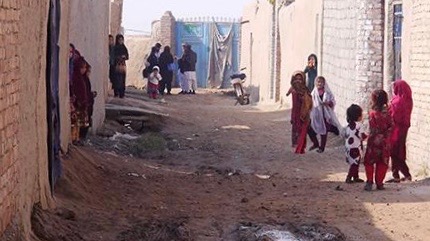The Afghan ministry of public health announced on May 4, Monday that it has registered six new cases of polio in the country. This has taken the total number of cases recorded this year to 11. The fresh cases are being linked to the stopping of regular vaccination following the COVID-19 pandemic.
Several countries have reportedly stopped their regular vaccination drives due to a shortage of medical staff and other health infrastructure amid the COVID-19 crisis. The World Health Organization (WHO) had warned countries last month to not compromise on regular vaccination to check other diseases. WHO chief Dr. Tedros Adhanom Ghebreyesus had said, “We must not risk losing the fight to protect everyone, everywhere against vaccine-preventable diseases” which may come “roaring back if we do not vaccinate.”
According to TOLO news, there are approximately 10 million children in Afghanistan under the age of five eligible for vaccination. However, around two million of them are not vaccinated due to the protracted war and conflict in the country. Vaccination has completely stopped since the outbreak of COVID-19 in March.
Meanwhile, a report published by Save the Children noted that as many as seven million children in the country are likely to face a “storm of hunger, disease and death” due to the rise in food prices during the pandemic.
Ever since the countrywide lockdown was imposed in war-torn Afghanistan in March, the prices of the essential commodities have increased multifold. “The price of wheat flour and cooking oil have increased by up to 23% while the cost of rice, sugar and pulses have increased by between 7 and 12%,” the study said.
The report highlights that the novel coronavirus threat has only compounded the hardships faced by the local populace that has survived decades-long political conflict and violence. “Before this (healthcare) crisis, the total number of children who needed some form of humanitarian support in 2020 stood at 5.26 million,” the report estimates.
It also points to the fact that a large portion of the Afghan workforce relies on the informal sector, with no safety nets when work is scarce. Even the wages of daily laborers have fallen considerably, with hardly any work available due to the countrywide restrictions.
As of now, Afghanistan has 0.3 doctors per 1,000 people. Longstanding political hostilities and instability have taken an immense toll on the healthcare facilities in the country.
So far, around 2,700 cases of COVID-19 have been reported across Afghanistan, with 85 deaths. These numbers are expected to increase, and are considered to be lower than the real figure due to under-reporting and the lack of testing.





